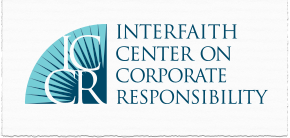“Locking the Door from the Inside”
By Robert Wotypka, OFM Cap.
Pope Francis has a knack for pulling together a breadth of realities by theologizing a common phrase or image. The most recent example is this: “locking the door from the inside.” The phrase was cited in a National Catholic Reporter story on his new book, Ave Maria. The context is worth quoting; Francis writes that “Mary is unable to enter the hearts of corrupt men and women because they have made the ‘satanic’ choice of ‘locking the door from the inside.’”[1]
What comes to mind via this image, “locking the door from the inside”? I picture neighborhood stores – found all over our province – where all the staff and all the stock are behind bulletproof glass, with slide panels and partitions to allow for transactions.There is no virtue in naivety, and we all live with locked doors. At Saint Ben’s friary in Milwaukee where I live, I make a nightly circuit to make sure all our double locks are set. The friary has been broken into in the past, and there are risks that come from living in a placed encircled by a detention center, a jail, and a police station. But what Pope Francis is pointing to is different, because it involves the heart as the seat of emotion and the place of encounter. The action of locking the heart from the inside means limiting our encounters, limiting our ability to be transformed by each other’s gifts and needs, and limiting our ability to change and grow.
It is in my work on the province’s Justice, Peace and Integrity of Creation commission, and as its Corporate Responsible Investing agent (CRI), that I see inside locks being installed and tripped in places that have long been open. Think of the recent changes implemented in the national policy on accepting people seeking refuge. The ceiling for accepting people seeking asylum was lowered from 110K to 45K individuals in 2017, and in the current term it has been cut again,[2] even though there is no chance the current ceiling will be met, owing to the slowed-down processing times.[3] Our CRI work is under threat of being shackled for the fruits it has borne.Faith-based shareholder activism uses the relationship between investors and enterprises to address inequality, oppression, suffering, environmental degradation, indeed the full range of struggles and suffering arise when the sole motive of an enterprise is profit. This movement calls executive management to higher purposes and broader responsibility, and it can mark many successes in the decades since the CRI movement began in the early 1970s.
But today there are fewer and fewer companies listing their shares publicly.[4] The regulatory environment is more tolerant of concentration of power within industries because of an abiding belief in the power of disruption. So, mergers and takeovers are more common, which shrinks the number of companies. Privatization of an enterprise previously held by shareholders is quite a dramatic way of “locking the door from the inside,” and is yet another hindrance to the CRI movement. And there are proposals working their way through regulatory agencies and legislative bodies that seek to raise the minimum holdings needed to petition executive management through shareholder-based rights.
What values are being served by these changes real and potential, and who is being helped by them? Are companies more efficient when they are less accountable? And why is efficiency always held up as the highest virtue? Scripture sees lasting worth and beauty in transparency. As it is written, “Take no part in the fruitless works of darkness; rather expose them, for it is shameful even to mention the things done by them in secret; but everything exposed by the light becomes visible, for everything that becomes visible is light” (Ep 5: 11-14). In what other way can we know that our calls and prayers for justice for victims of sexual abuse by clergy are being answered than through transparency? Scriptural wisdom finds expression in popular culture in the saying “Sunlight is the best disinfectant.” At a recent CRI movement meeting an advocate for reform of child abuse practices in industry and agriculture told those gathered to watch for a specific sign, and by that sign to know that change was afoot: when companies move from refusing to discuss the issue in private to becoming public advocates for what they are doing to protect children.
Unlocking the nation’s door from the inside has made the US a more diverse, vibrant, and tolerant place, even as it has brought some struggles. At the personal level, unlocking and moving into new contexts, outside of comfort zones, mean encounters that draw on our heart’s reservoirs of trust and hope, which in the end can make us more empathetic and deepen our commitment to each other. On Corpus Christi Sunday Pope Francis asked, “How many mothers, how many fathers, together with the slices of bread they provide each day on the tables of their homes, have broken their hearts to let their children grow, and grow well?” Better we break our hearts than lock them.
1) https://www.ncronline.org/news/vatican/francis-chronicles/mary-mother-sinners-not-corrupt-pope-says
2) https://www.cfr.org/blog/trump-administration-cuts-refugee-admissions-further
3) https://www.politico.com/story/2018/09/17/trump-refugees-limits-ceiling-826302
4) https://www.nytimes.com/2018/08/04/business/shrinking-stock-market.html





